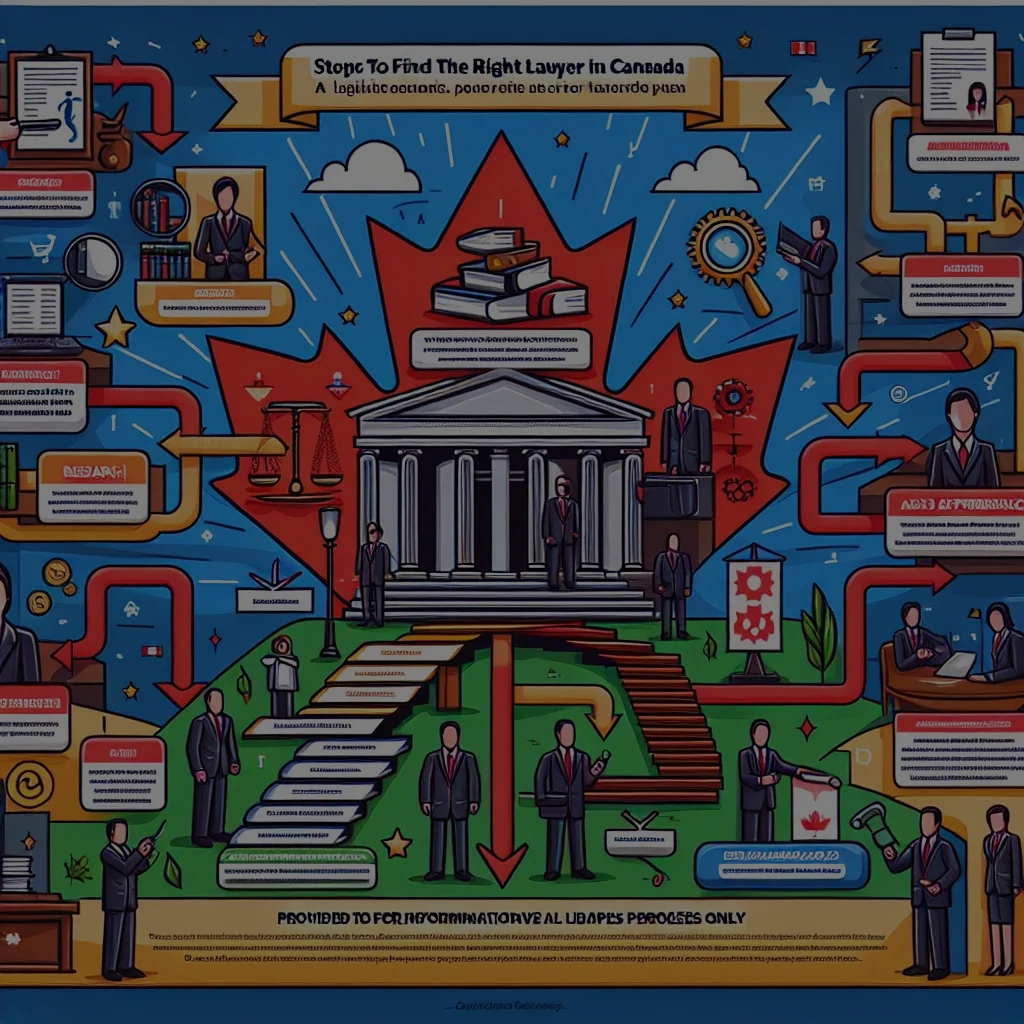Finding the right lawyer in Canada can be a daunting task, especially given the vast array of legal specialties and the complexities of the legal system. Whether you are dealing with family law, criminal charges, or business disputes, having the right legal representation can make a significant difference in the outcome of your case. This comprehensive guide outlines the essential steps to help you identify, evaluate, and ultimately choose the right lawyer for your needs.
Understanding Your Legal Needs: A First Step to Take
Before embarking on your search for a lawyer, it is crucial to clearly define your legal needs. Understanding the specific nature of your legal issue will not only help you communicate more effectively with potential lawyers but also streamline the search process. For instance, if you are facing a divorce, you will need a family law specialist, whereas a business dispute may require a lawyer with expertise in corporate law.
In addition to identifying the area of law relevant to your case, consider the complexity of your legal issue. Some cases may require extensive legal maneuvering, while others may be resolved through straightforward negotiations. Clarifying whether you are seeking representation for litigation, advice, or mediation will aid in narrowing down potential candidates.
Finally, consider the emotional and logistical aspects of your situation. Legal matters can be stressful, so finding a lawyer who not only has the requisite expertise but also makes you feel comfortable is vital. Take the time to reflect on what you need from a legal professional, which will serve as a foundation for your research.
Researching Potential Lawyers: Where to Begin Your Search
Once you have a clear understanding of your legal needs, the next step is to embark on research to identify potential lawyers. Begin by seeking referrals from trusted sources, such as friends, family, or colleagues who have had positive experiences with legal professionals. These personal recommendations can provide valuable insights and help you compile a list of candidates.
Online resources can also be instrumental in your search. Websites such as the Law Society of Ontario or the Canadian Bar Association provide directories of licensed lawyers categorized by area of law. These platforms often include client reviews and ratings, helping you gauge the reputation of potential lawyers. Social media platforms and professional networking sites can also offer insights into a lawyer’s practice and client interactions.
Another effective strategy is to attend legal clinics or community events where lawyers offer free consultations. This not only allows you to meet lawyers in person but also gives you a taste of their communication style and approach to legal issues. Gathering a diverse list of potential lawyers will set the stage for the next critical step: evaluating their qualifications and experience.
Evaluating Qualifications and Experience: Key Considerations
With a list of potential lawyers in hand, it is time to evaluate their qualifications and experience. Begin by reviewing their educational background, which can provide insight into their foundational legal knowledge. Check for any additional certifications or special training that may be relevant to your specific case, as these qualifications can enhance a lawyer’s competence in the field.
Experience is another crucial factor. Inquire about the number of cases similar to yours that the lawyer has handled and their success rate in those matters. A lawyer’s experience can significantly impact their ability to navigate your case, as seasoned professionals are typically more adept at anticipating challenges and leveraging strategies that lead to successful outcomes.
Furthermore, consider whether the lawyer has experience in the specific jurisdiction relevant to your case. Different provinces in Canada may have unique laws or practices, so a lawyer familiar with the local legal landscape is often better equipped to advocate for your interests. Doing thorough research will help paint a clearer picture of each candidate’s qualifications and allow you to make a more informed decision.
Making the Final Choice: Questions to Ask Before Hiring
After narrowing down your list of potential lawyers, it is essential to conduct interviews to determine who is the best fit for your needs. Start by asking about their approach to your particular legal issue. Different lawyers may have various strategies, and understanding how they plan to handle your case can provide insight into their expertise and compatibility with your objectives.
In addition to discussing strategy, inquire about the lawyer’s fees and billing practices. Understanding the financial aspects upfront will help you avoid surprises later on. Ask whether they charge a flat fee, hourly rate, or contingency fee, and what additional costs you might incur throughout the process. Clarity on financial terms is crucial to ensure that you are comfortable with the lawyer’s fee structure.
Finally, assess the lawyer’s communication style and availability. Legal matters often require ongoing communication, and having a lawyer who is responsive and approachable is vital. Pay attention to how they answer your questions during the interview—this can be a good indicator of how they will communicate with you in the future. After these conversations, you should have a more comprehensive understanding of each candidate and be better positioned to make your final choice.
Choosing the right lawyer in Canada can be a transformative step in navigating your legal matters effectively. By understanding your legal needs, conducting thorough research, evaluating qualifications, and asking critical questions, you can identify the best lawyer for your situation. Remember, the lawyer-client relationship is pivotal, and investing time in this process can lead to favorable outcomes in your legal journey. With the right professional at your side, you can approach your case with confidence and clarity.
Navigating the Appeal Process: A Guide for Canadian CourtsUnderstanding Impaired Driving Penalties Across CanadaUnderstanding Your Rights When Arrested in CanadaRelevant LinkRelevant LinkRelevant LinkNavigating the Appeal Process: A Guide for Canadian CourtsUnderstanding Impaired Driving Penalties Across CanadaUnderstanding Your Rights When Arrested in CanadaRelevant LinkRelevant LinkRelevant Link


